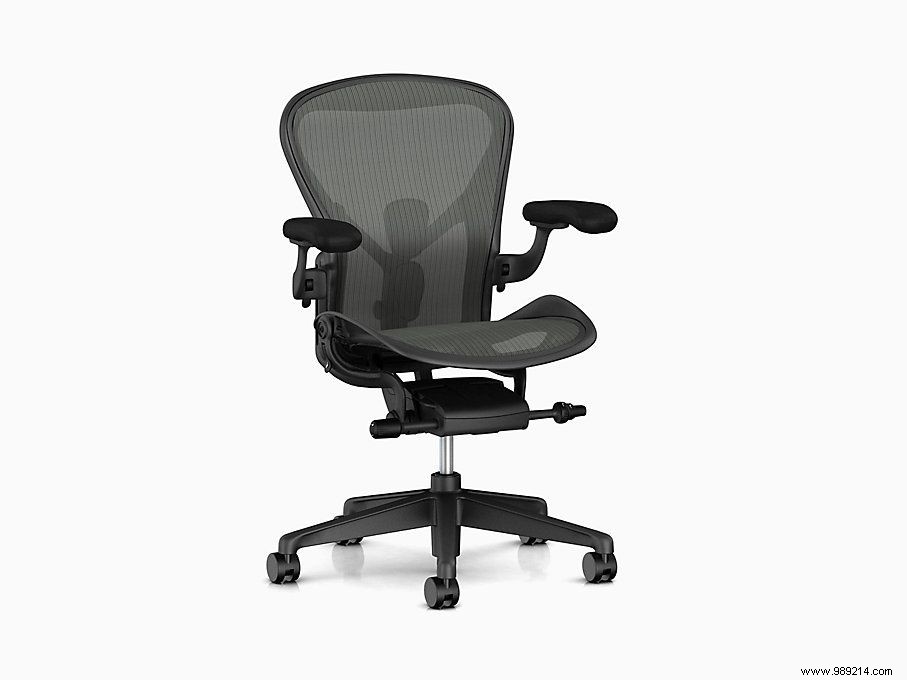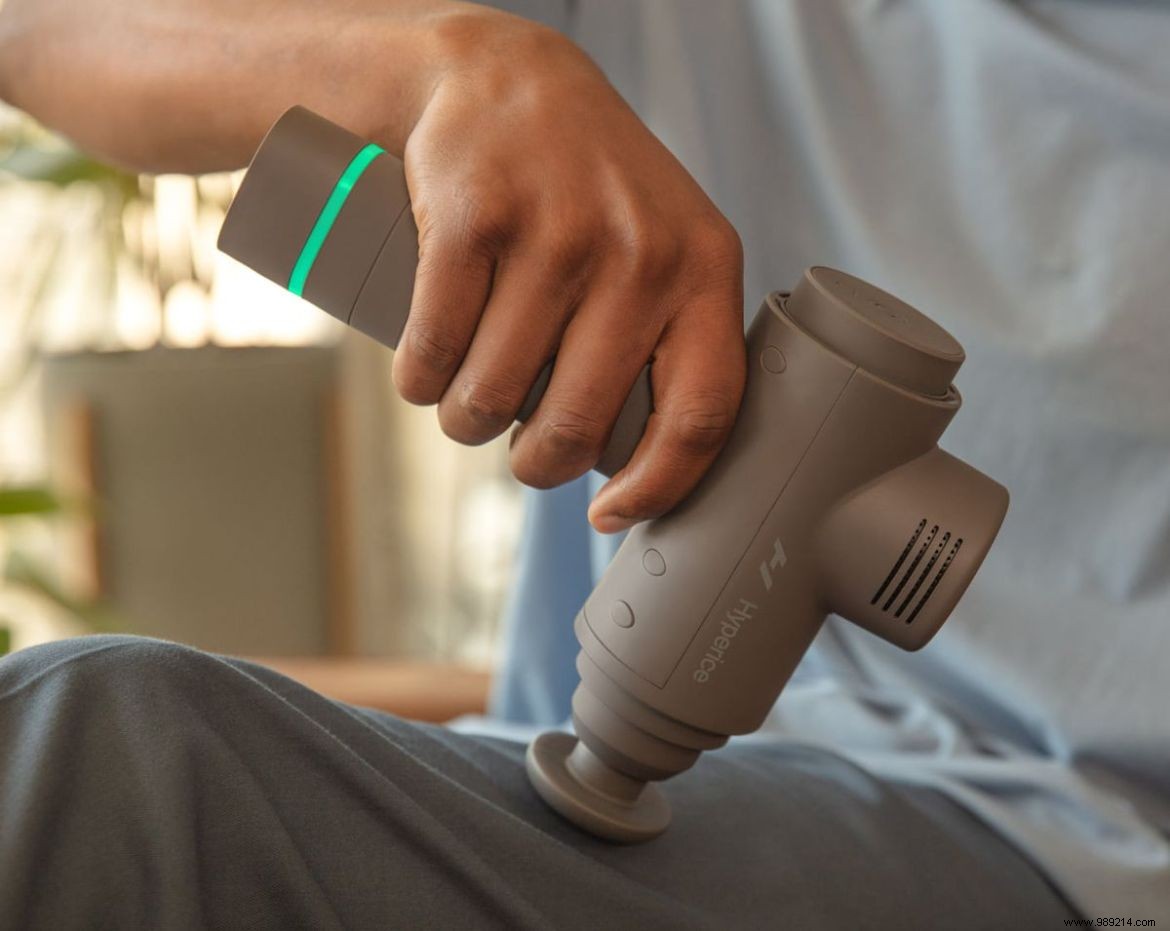This pandemic has more people working from home than ever before, but it's not all lollipops and daffodils. While there may have been some excitement at first about not commuting or being inhaled by Chet the Xerox tech, a real home office can be downright depressing and/or uncomfortable. I should know.
ContentsDesk SetupLightPlants and AnimalsTake Care of Your BodySnacks and MealsCall it a DayAs a freelancer for the vast majority of the past decade, I've worked from home most of that time — even when the house was an RV for more than five of those years. Yes, it was a tight space for a home office, but those constraints caused me to hone my WFH game to keep my body healthy and my mind at least partially sane. Here are some of the tips (and things) that made the biggest difference for me.
If you only do one thing on this list, make sure your desk and chair are comfortable. This is general advice, but it has to be, because every body is different. What you find comfortable could be a medieval torture device for me. Example:I purchased a desk online that got rave reviews, but it turns out that if my chair is set to the correct height, the front of the desk digs into my thighs. Not ideal! So, if possible, try to sit at a desk before buying it. You might also consider a standing desk which increases the number of positions you can work from. Personally, I couldn't find one that worked with the rest of my setup (I'm a sucker for a lot of drawers).
I would say the chair is even more important than the desk. You are going to want something ergonomic and with adjustable lumbar (lower back) support. Working bent over can destroy your body, and your shoulders, back, and neck will all suffer. Chairs can cost a pretty penny, but they don't have to. Craigslist, OfferUp, Nextdoor, and similar sites can be treasure troves for used office chairs. I read good things about the Herman Miller Aeron, so I went to try it out at a store, then found a lightly used one on Craigslist for about 30% of the cost of new. You can also lean into gaming chairs, as they are designed for long periods of sitting. Just make sure it will fit your desk.

Photo:Herman Miller
Finally for this section, let's talk about what's happening on your desktop. Depending on the type of job you're working in, a second screen can be a real game-changer, so consider an additional monitor for your desktop or laptop. It allows for much easier multitasking with far fewer clicks. If you're using a laptop, this could be especially telling. Personally, I recently went back to a desktop setup (a Dell tower with an Intel Core i7 processor, an Nvidia RTX 3070 and 32GB of RAM, which has been great for photo and video editing as well as breakouts VR gaming), and instead of two monitors, I went with a big one that I can split into halves or quadrants. I picked up the Dell UltraSharp 32 4K Monitor, and I'm in love with it. If you don't do photo or video editing, you might not need something this high end. The goal is to give you more space to work.
There are a bunch of different studies that explore how different shades of light can impact our minds and bodies. They could affect everything from quality of sleep, to alertness, to mood, to our productivity at work. My best advice is to set up your desk near a large, well-lit window, but I know that's not always possible. The next best thing, in my opinion, is a set of color changing lights.
I personally used Philips Hue for years, and even installed them in my van, back when it was my home. Philips spent a lot of time working on their light recipes, and the system comes pre-programmed with 'Energize' and 'Concentrate' settings which I find really useful. Personally, I use Energize when I wake up and then Concentrate (which is slightly warmer) for most of my workday. When I'm ready to start relaxing, I'll switch to the reading setting, which I find warm and relaxing. There are many other brands of color changing lights, and if they don't have presets like the ones I mentioned, you can experiment with different shades of light (more blue for extra alertness, more red for relaxation , or something like that ). It's a small thing, but it really makes a huge difference in how your home office feels.
There's something about surrounding yourself with living beings that makes your home office feel more natural and less like a sterile shoebox. Having a few houseplants can really change the mood of the whole room, and they can even make the air feel slightly fresher. I would recommend placing them near your desk, but also close enough to a window that they get plenty of light. If that's a problem, you can get a hydroponic garden - for example, I recently had the little Rise Garden. I'm bad with plants, but this allowed me to grow lots of fresh herbs, which made my apartment smell amazing. If that sounds like overkill (or expensive), you can just start with this cool-looking snake plant we're a bit obsessed with (it's $35).
When it comes to animals, I know a lot of people who have adopted pandemic puppies and kittens. It's cool, and maybe it's perfect for your life, but it definitely wasn't for mine. So, I have a hummingbird feeder called the HummZinger.

Image:Aspects
I got this one because it's simple, but still has ant and fly protection. I am now obsessed. I can see the feeder from my desk, and every time one of these little guys shows up, I stop what I'm doing and look. On days when I fry my eyeballs on my computer screen, it really helps me feel like I'm still part of the natural cycle. You can get a regular bird feeder if you like, but I wasn't interested in constantly cleaning up bird droppings from my small outdoor space, and the hummingbirds are nice and tidy.
Eliminating your commute can actually have negative impacts on your body, especially if your commute involved some amount of walking or cycling. Nowadays, it's conceivable that you won't leave your house for days on end, and being that sedentary is really not good for you. Get up and move, and get your heart pumping. You don't need a fancy home gym. Get yourself a yoga mat and watch YouTube workouts that only require your body weight. Force yourself to take walks, even if you don't feel like it. Stretch!
I also tend to get a lot of knots in my shoulders (and in my legs if I'm actually going for a run). For those I really like, the Hypervolt 2 massager. It's incredibly powerful, very portable, and it comes with five different attachments for different stubborn muscles. At just under $300, it's not cheap, but it was worth it to me. The other thing I'm obsessed with right now is this pair of slippers from LL Bean. They are so warm and comfortable that I work in them pretty much all day and then lounge in them the rest of the evening.

Photo:Hyperice
This is one of the most delicate elements. Suddenly you have unlimited access to your refrigerator and snack cabinets, and it can be very tempting to just graze all day. So what are you doing? Here's the strategy that worked for me better than anything else:Stock your kitchen with healthy foods, and only healthy foods. Yes really. If I walk into my kitchen, wanting a snack, and there are fries, I'm going to eat those fries. But if I go there and the only snacks are carrots and sugar snap peas, then that's what I'm going to eat. Basically, I have to use my tendency to laziness against my tendency to gluttony, and it really works!
Beyond the superficial reasons to eat healthier, this will lead to better and longer lasting energy levels, as opposed to spikes and crashes. Not only can I subjectively feel the difference, but when I recently reviewed this continuous glucose monitoring system, I was able to get some hard data to back it up. When your kitchen is full of tasty yet highly processed foods, you need to be willing to make the healthy decision every time you want a snack. It's easier to be strong once, at the grocery store, and then you don't have to make those tough decisions a dozen times a day in your own home.
You need to know when it's time to quit, then you need to walk away. It was a more delineated status for many of us:if you were in the office, you were working, and if you weren't in the office, it was your personal time. Working from home makes those lines much blurrier. It can easily give the impression that work never stops or that you always have to be reachable. Set boundaries for your own mental health. Do your work and when office hours are over, get up and step away from your computer for a while. You'll be glad you did, and you'll come back to your "office" tomorrow more rested and ready to go.